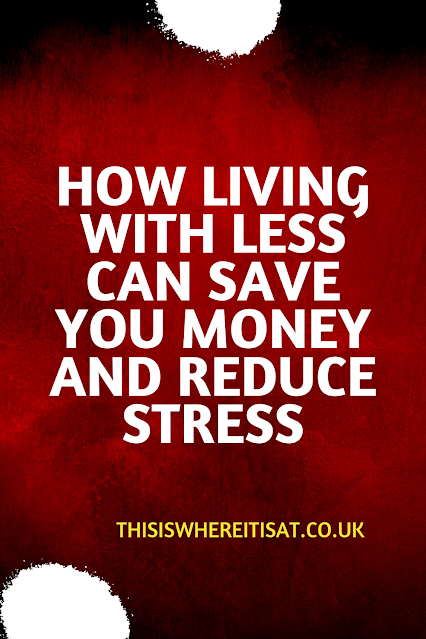In today's consumer-driven world, we're constantly bombarded with messages to acquire more.
Minimalism is a philosophy that focuses on intentionality and what truly matters.
It offers a surprising solution to our biggest struggles: financial strain and overwhelming stress.
Financial Freedom through Reduced Spending.
Curbing Impulse Purchases: By uncluttering your life, you become keenly aware of what you already own.
This newfound awareness eliminates the urge to buy things you don't need, leading to significant savings.
Prioritising Needs over Wants.
Minimalism compels you to differentiate between needs and wants.
You'll prioritize essential items like food, shelter, and healthcare while minimizing spending on fleeting desires.
Investing in Quality over Quantity.
Minimalism encourages buying well-made, long-lasting items.
This shift from fast fashion and low-quality goods to durable products saves money in the long run.
Reduced Storage Costs.
Owning less translates to needing less space.
This can lead to downsizing your living situation, significantly lowering your housing or storage costs.
Stress Reduction through a Simpler Life.
Uncluttering Mental Space: Physical clutter often creates mental clutter.
Uncluttering your surroundings frees up mental space, reducing feeling overwhelmed.
Easier Decision-Making.
With fewer possessions, you have less to manage and maintain.
This simplifies daily routines and eliminates the stress of decision fatigue, which is the mental strain caused by having too many choices.
Focus on Experiences.
Minimalism encourages prioritizing experiences over material possessions.
Investing in travel, hobbies, or spending quality time with loved ones fosters a sense of fulfilment and lasting memories.
Increased Time and Energy.
Less stuff means less cleaning, organizing, and maintaining.
This frees up valuable time and energy you can devote to activities that bring you joy and reduce stress.
Getting Started with Minimalism.
Embracing minimalism doesn't require drastic life changes.
Here are some practical steps to get you started.
Unclutter Regularly.
Start small. Dedicate a specific time each week or month to unclutter a particular area of your home.
Donate, sell, or recycle items you no longer need or use.
Resist Impulse Purchases.
Ask yourself, "Will I use this regularly?" and "Does this bring me joy?".
Implement a waiting period before buying non-essential items to curb impulse spending.
Embrace Multipurpose Items.
Opt for furniture and appliances that serve multiple functions. These reduce clutter and save space.
Focus on Experiences.
Budget for experiences that create lasting memories, like attending a concert or taking a weekend trip, instead of focusing solely on material possessions.
Minimalism is a journey, not a destination.
By gradually incorporating its principles into your life, you'll not only save money but also experience a significant stress reduction.
Remember, true wealth lies not in the abundance of things you own but in the richness of your life.
Cheers for reading x









No comments